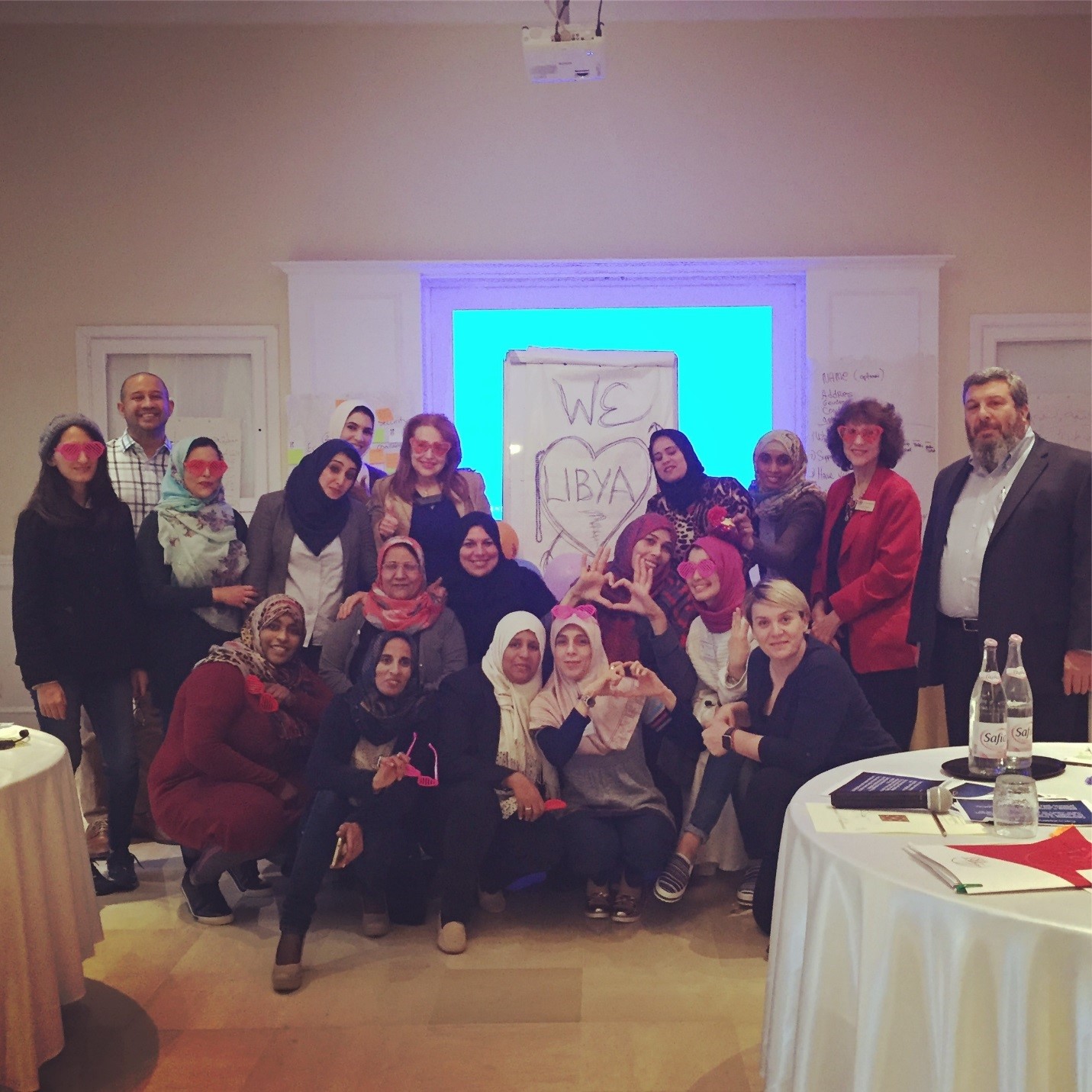IRI Launches Women’s Empowerment Program in Libya

With the support of the Middle East Partnership Initiative, IRI has launched a program designed to strengthen the participation of Libyan women in their country’s political process, as candidates, political activists and elected officials. This new project is designed to provide training on political participation to over 300 Libyan women in the next year.
The program was launched in Tunisia, where 15 women participated in a forum that focused on sharing key campaign skills and improving their capacity as trainers. The goal is that following this training, these women master trainers will return to 15 different cities across the whole of Libya to impart these skills as they prepare potential women candidates who may seek office in the future.
In addition to traditional training methodologies, IRI Libya is using social media to help amplify the reach of its training. In a recent program focused on empowering women to participate in Libyan political life, IRI used Facebook tools to launch its new project. IRI has successfully utilized Facebook as a networking tool with other programs in Libya, notably one focused on capacity building for youth. IRI hopes to see an online network of women trainers and candidates grow in the coming year.
The Facebook page was launched as a training and networking tool. The site allows colleagues at home to view the training in real-time and allows others to view the videos at their convenience. The Facebook site will also allow women to stay in touch with each other as they begin imparting skills to others throughout Libya.
As Libya undertakes the difficult process of reconciliation and democratic institutionalization, the lack of women’s inclusion presents a particularly formidable challenge. Quota legislation will not be a means to an end in itself; more is needed to enhance, and ensure, women’s political participation and representation in decision-making positions. The barriers to their increased inclusion are many, societal, historical and traditional.
While women have struggled to gain a foothold in the country’s political sphere, IRI believes that programs such as this will assist Libyan women in gaining their rightful place in Libyan political life. IRI will provide further updates on the program from three participants who over the next year will write about their experiences as master trainers and women’s advoacates.
Top